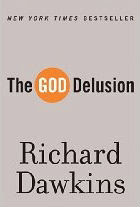 Science has come a long way, but there’s something on which it has had little effect: the propensity of human beings to believe in the existence of things outside the laws of nature. Like God - that supernatural entity said to have created the universe and all in it. This book lays out an overview of why people keep on believing in the face of a lack of evidence for the existence of anything divine, the reasons why such belief is erroneous and largely pointless, and the harm that faith and those who have it can do.
Science has come a long way, but there’s something on which it has had little effect: the propensity of human beings to believe in the existence of things outside the laws of nature. Like God - that supernatural entity said to have created the universe and all in it. This book lays out an overview of why people keep on believing in the face of a lack of evidence for the existence of anything divine, the reasons why such belief is erroneous and largely pointless, and the harm that faith and those who have it can do.
This was just the bit of atheist relief I needed - observant readers will have noticed that my progress through the Bible has become rather sluggish of late, and I was pleased with this respite. Whether it actually could shake anyone from their faith I couldn’t say, never having possessed any, but being outside the target audience didn’t impede my enjoyment. Or rather, it didn’t affect my interest - it wasn’t always pleasant reading. The details of the activities of America’s Christian extremists were scarier than Dracula, all the more so because of the little voice at the back of my head wondering, How long before that degree of zealotry crosses the Pacific and takes root here? Admittedly we’re not without our nutcases now, but we can’t hold a candle to the popular image of America as being positively saturated with religion. Which sinks the book’s suggestion that the US is so intensely religious because of high numbers of immigrants (who would likely turn to the church in the absence of family) and the lack of a state religion (allowing churches to compete in a free market) - both of which conditions apply here, too.
It’s been ages since I’ve read anything on religion - or the absence thereof - so it was in part a nice refresher course on the common arguments for the existence of God and counterarguments against, and the main arguments for God’s non-existence. Equally fascinating were the chapters considering the possible scientific explanations for the origin of religion, and the brain’s capacity for it. Unfortunately the subject of neurotheology was barely touched; I saw a documentary on that several years ago and had hoped for the chance to read more about it. (Neurotheology: the hypothesis that God is literally all in the mind, the product of electromagnetic radiation affecting the temporal lobes, or in the case of vivid religious visions, of temporal lobe epilepsy. I think my temporal lobes must be about as susceptible as concrete.) If I had time before it’s due back at the library I’d re-read large swathes of it in order to soak up all the bits of information not properly absorbed first time around. Not, however, the segment on meme theory, which largely went over my head. I am determined that one day I will grasp the concept, but it will take a lot more reading for that to happen.
With my science background and innate scepticism, there was little chance of me not loving it, and when I read the following I felt like cheering:
As a scientist, I am hostile to fundamentalist religion because it actively debauches the scientific enterprise. It teaches us not to change our minds, and not to want to know exciting things that are available to be known. It subverts science and saps the intellect.. . . but I still found a few points of contention. Dawkins declares - rightly - that one cannot refer to a 'Christian child’ as children cannot hold informed opinions on religion or any other matter, then fails to suggest at what age one can. (As part of the latest Blog Improvement Project task, I’m adding questions to posts, so I’ll ask you: How old do you think someone has to be to understand what they’re believing and why?) I really don’t know if I’d agree with the notion that a religious upbringing is tantamount to child abuse. (Though I began to see his point the other night. A news report from a flash-flooded town featured a young girl saying she didn’t know what to do so just ran to her bedroom and started praying; I thought how lucky she was that such inaction hadn’t proved fatal.) And the big one: The introduction asks us to imagine a world without religion, and a later chapter argues that even moderate religion can foster extremism and any faith can be a very dangerous thing. But the likelihood of an evolutionary basis for belief shoots that vision of a religionless world in the foot. For how can you possibly eradicate something, the predisposition to which is hardwired into our brains? (Well, most of our brains.) Even if the major religions could be somehow whisked off the face off the earth, people with a tendency to believe would find something to believe in - or an opportunistic science-fiction author would invent something :-)
If you’re interested in religion, science, ethics, or philosophy, you must read this book - preferably with pen and paper handy, to list all the other interesting-sounding books mentioned. Confirmed sceptic or true believer, it will make you ask yourself where you stand, and why you think and believe the way you do. Who knows? It might even change your mind.
Rating: A-

















I think the suggestion that a religious upbringing is tantamount to child abuse is totally silly. SOME religious upbringings are - mine certainly wasn't - but that's more to do with having crummy parents. It's perfectly possible to raise your children in a faith while also raising them to question what they believe and make decisions for themselves. (Or so I fondly tell myself - I did stay Catholic, albeit a really cranky Catholic.)
ReplyDeleteI think your example about the little girl who went to her bedroom and prayed is upsetting; on the other hand, kids often don't know how to handle situations like that. A little girl whose family wasn't religious might just as well have run to her room and hid under the bed during a flash flood.
I've been meaning to read this for a while, and now that I've read your review I think I will go ahead and get it from the library.
I don't think that you can say a religious upbringing is the same as child abuse! I tend to agree with Jenny...some people might abuse the notion of religion to that end. I've seen it happen, heard the horror stories, but sheesh! Yes there are fundamentalists in all areas of life.
ReplyDeleteIt's comments like that turn me off wanting to read a book like this, because it sounds so extremist. Sort of the opposite of the fundamentalists, but really, deep down, just the same.
I really do want to read this. I think some of the views are extreme, but then there are so many Christian and other religious extremist viewpoints out there. Dawkins is an interesting character and I really enjoyed a talk of his I went to a couple of years ago just before this came out.
ReplyDeleteHow old do you think someone has to be to understand what they’re believing and why?
ReplyDeleteI think a "Christian child" is simply a child who is a member of the Christian community. Dawkins is a rationalist and inevitably sees things in rationalist terms. Good review BTW.
Jenny: That would have to be one of the longest and best thought out comments I've received! That chapter had me raising my eyebrows; I'd want to see some hard evidence before believing that. My own incidental exposure to Christianity certainly never did me any harm - water off a duck's back, really.
ReplyDeleteAs for teaching children to think about their beliefs, I think comparative religion classes would be a great thing.
Amy: I could understand the sentiment applied to crazy cults, but the Lutheran church down the road? Not so much.
I don't think a comparison can be made to fundamentalists - for one thing, as atheism is the absence of belief, atheists have no texts or tenets to be fundamentalist about. And what's being promoted isn't unquestioning obedience to such-and-such a book or person, but the reverse; the asking of questions, the studying of facts and evidence, the making up of one's own mind.
Having read almost nothing about religion I couldn't give any names, but I'm sure if you wanted to read about atheism there are plenty of writers more tactful than Dawkins.
Rhinoa: I don't agree with everything he says, but I do admire him for having the nerve to say it! He sure does liven things up.
Derek: I should have thought a rationalist viewpoint was an eminently - well, rational one to take! But admittedly I'm biased :-)
Thanks for the complement - it was a hard review to write (chiefly because the book set my thoughts in a whirl and they haven't quite settled down yet), so it's good to know it came out well.
AWESOME BOOK!! Everything I have ever thought about GOD is confirmed and allowed me to know that I am NOT the only one to feel this way.
ReplyDelete